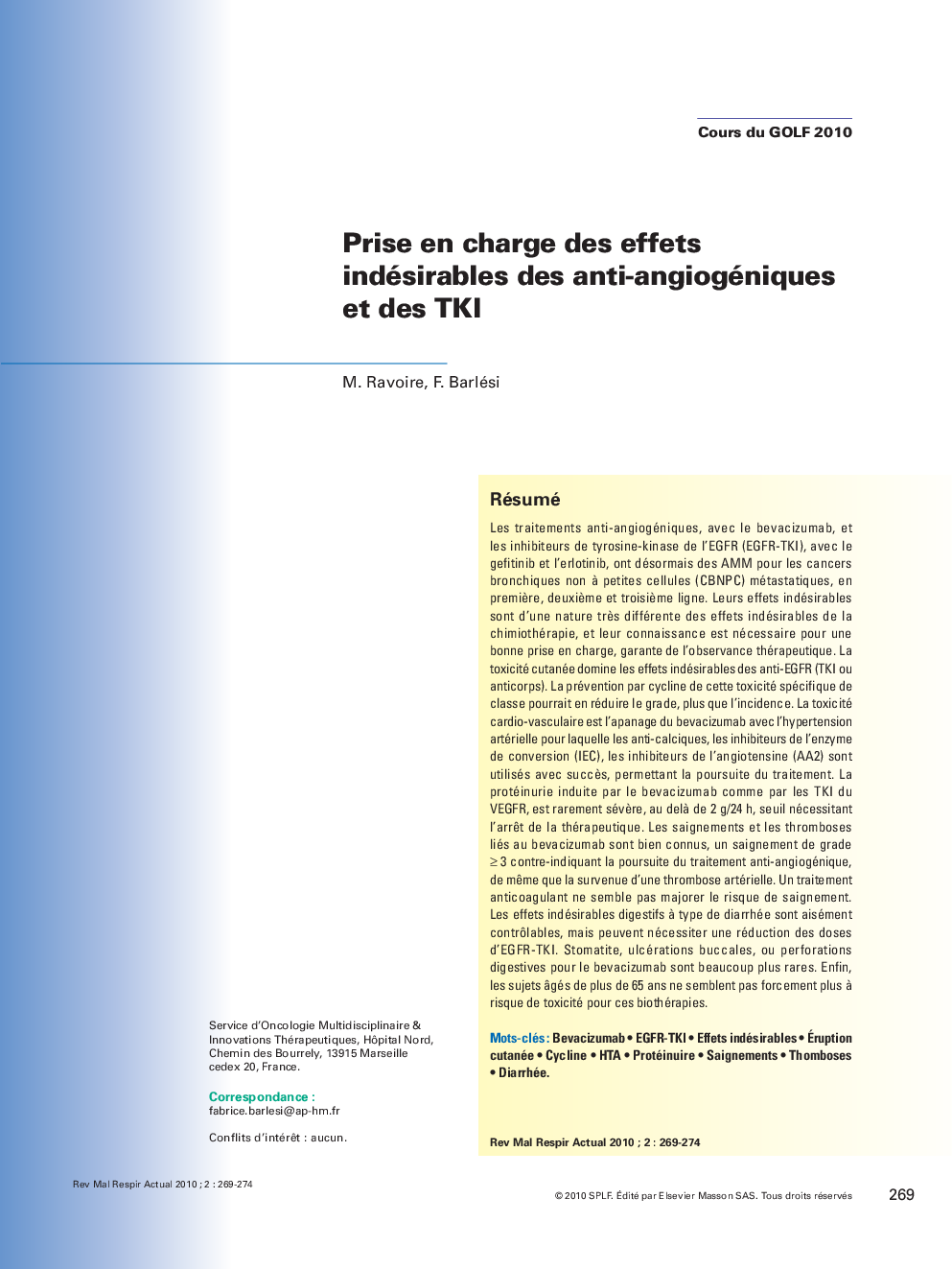| کد مقاله | کد نشریه | سال انتشار | مقاله انگلیسی | نسخه تمام متن |
|---|---|---|---|---|
| 4216458 | 1281176 | 2010 | 6 صفحه PDF | دانلود رایگان |
عنوان انگلیسی مقاله ISI
Prise en charge des effets indésirables des anti-angiogéniques et des TKI
دانلود مقاله + سفارش ترجمه
دانلود مقاله ISI انگلیسی
رایگان برای ایرانیان
کلمات کلیدی
موضوعات مرتبط
علوم پزشکی و سلامت
پزشکی و دندانپزشکی
پزشکی ریوی و تنفسی
پیش نمایش صفحه اول مقاله

چکیده انگلیسی
Antiangiogenic treatments, with bevacizumab, and the tyrosine kinase inhibitor of EGFR (EGFR-TKI), with gefitinib and erlotinib, now have market authorization for first-, second-, and third-intention metastatic non-small-cell lung cancer (NSCLC) treatment. Their adverse side effects are very different from those of chemotherapy, and they must be well known for good patient management, the guarantee of therapy observance. Cutaneous toxicity dominates the adverse side effects of the anti-EGFR (TKI or antibodies). Cyclin used to prevent this specific class of toxicity could reduce the grade more than the incidence. Cardiovascular toxicity is treated with bevacizumab, with hypertension successfully treated with calcium channel blockers, angiotensin enzyme converting inhibitors (ACEIs), angiotensin II antagonists (AA2), allowing treatment to continue. Proteinuria induced by bevacizumab and VEGFR-TKI is rarely severe under 2 g/24 h, the threshold beyond which therapy should be interrupted. Bleeding and thromboses related to bevacizumab are well known, with grade ⥠3 bleeding contraindicating pursuit of antiangiogenic treatment, like the onset of arterial thrombosis. Adverse digestive side effects such as diarrhea are easily controlled but can require reducing the doses of EGFR-TKI. Stomatitis, oral ulcerations, or digestive tract perforations are much rarer. Finally, subjects over 65 years of age do not seem necessarily at greater risk of toxicity for these biotherapies.
ناشر
Database: Elsevier - ScienceDirect (ساینس دایرکت)
Journal: Revue des Maladies Respiratoires Actualités - Volume 2, Issue 3, September 2010, Pages 269-274
Journal: Revue des Maladies Respiratoires Actualités - Volume 2, Issue 3, September 2010, Pages 269-274
نویسندگان
M. Ravoire, F. Barlési,